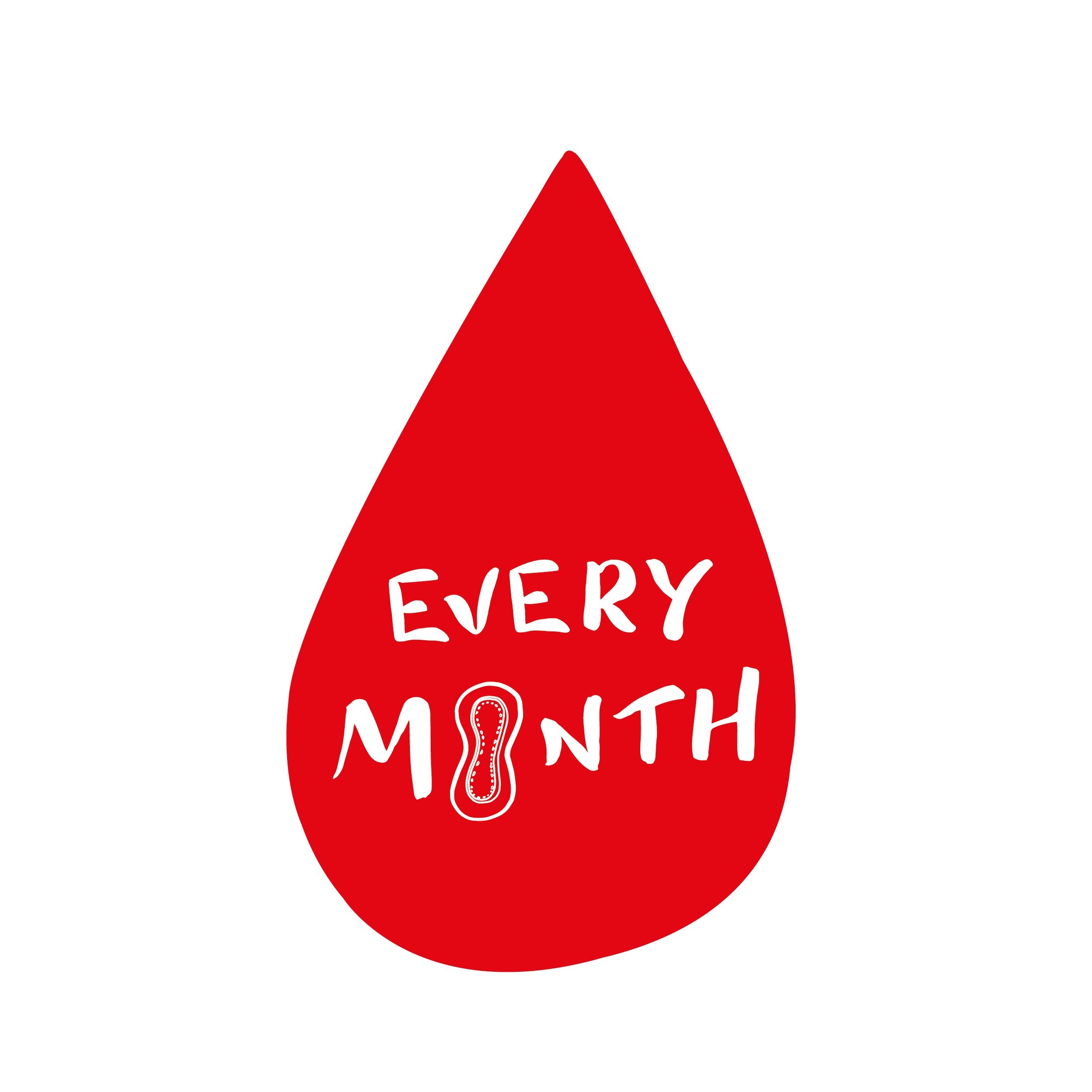Period poverty is a bloody big problem
What is ‘period poverty’? Well, it’s a bloody big problem, let me tell you that (no pun intended). Technically speaking, period poverty is not being able to access menstrual products like pads or tampons, due to financial restrictions. Practically speaking, period poverty can be what stands in the way of someone’s future.
In a study done of 1,000 people, 1 in 7 struggled to afford period products, while 1 in 10 of them could straight up not access these at all[1]. It’s terrible, isn’t it, that people are lacking period products every month. But what if I told you, it was years? On average, a person in their lifetime will spend the equivalent of 10 years on their period. That is a long time to go without any sort of period protection.
So why are they so hard to get hold of? Firstly, the rate of inflation increased in April of this year to 9%[2]. Inflation is essentially the term used to describe whether the price of goods and services in an economy has decreased or increased. So, with products everywhere on the rise, what’s happening with period products? Tesco chose to double the price of their cheapest pads[3]. That is a 50% increase in price, compared to only a 9% increase in inflation. Even Bodyform pushed the price of their Ultra Goodnight Sanitary Towels 10 Pack up by 7.7%.[4] These are only two examples, but the cost of period products is only increasing, and people just cannot afford them.
The lack of period products is disastrous for a person’s self-esteem, physical health, and also, their education. Research by Plan International UK found that 49% of children in the UK have missed at least one day of school due to their periods[5]. You might be thinking ‘that’s okay, that was me when I had cramps.’ And yes, I’m sure we all used periods as an excuse to get out of doing PE lessons with that one teacher that always smelled like cabbage. But what if you knew that 137,700 children miss school in the UK because of periods?[6] When you put that in perspective, that is a lot more people who bleed missing out on education than those who do not. It helps to create a system that sets a certain group of people up to fail. If you need proof of this, just know that the government classed tampons as a ‘luxury’ item until January of 2021.
With more and more children missing school, it denies them access to the education of their non-bleeding counterparts, and in turn this reflects after education and into adulthood. It is a terrible cycle that keeps people uneducated and therefore less likely to succeed.
Every Month aims to challenge this by providing period packs to people who need them, no cost, no stigma. We aim to support our community by making steps to fighting the inequality caused by period poverty. We understand that not everyone who bleeds is female, so our services are no-questions-asked. We really are here for any and every body. Period.
Written by volunteer, Emily Lake
[1] https://www.bodyform.co.uk/our-world/period-poverty/#:~:text=In%20the%20UK%2C%201%20in,21%20by%20Plan%20International%20UK.
[2] https://www.ons.gov.uk/economy/inflationandpriceindices/timeseries/d7g7/mm23
[3] https://www.moneysavingexpert.com/news/2022/03/tesco-doubles-the-price-of-cheapest-sanitary-products/
[4] https://www.thegrocer.co.uk/healthcare-beauty-and-baby/period-products-up-in-price-as-inflation-hits-menstrual-care-sector/665939.article
[5] https://www.bodyform.co.uk/our-world/period-poverty/#:~:text=Not%20having%20access%20to%20a,school%20because%20of%20their%20period.
[6] Period Poverty in Universities and Colleges (UK and Ireland), The Alliance for Sustainability Leadership in Education: https://www.sustainabilityexchange.ac.uk/files/period_poverty_in_universities_and_colleges_6.pdf
